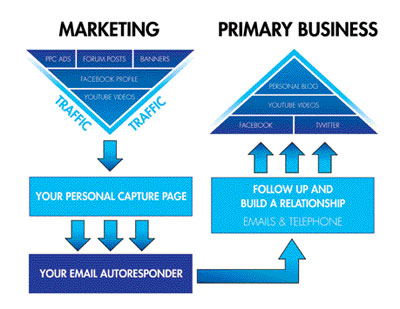Novel marketing strategies in post conflict scenario
S. Shivany
Senior
Lecturer, Marketing Department, Management Studies and Commerce
Faculty,Jaffna University.
War is a demoralizing factor, leaving its scratch on society,
physical structures, legal systems, and almost every aspect of a
country’s social, political and economic fabric.
For reconstruction to be effective, it requires a careful and
concerted approach that draws on domestic resources, international donor
assistance and private sector resources, and marketing approaches.

Countries emerging from conflict typically face multiple challenges
in rebuilding homes, schools, factories, banks, communications networks
and other key infrastructure. Therefore at the post conflict marketing
environment the challenge is to develop a holistic methodology that will
help the country mend their post-conflict wounds and move towards a path
of long-term sustainable development in marketing and trade.
The conflict between the armed forces of the Government and the LTTE
began in 1983.
It is characterized in part by its relative isolation from the rest
of the country.
Most of the fighting and war-related destruction has occurred in the
eight contested districts of the North and East.
The lack of proper transport and storage facilities and the
imposition of double taxing and loading and unloading charges at the
check points were all discouraging factors for a good marketing
environment.
The people were restricted for willing to engage in trade despite the
prevailing conflict conditions. This restriction and the increased
taxation is a significant impediment to economic activity during
conflict. In the post-war period free of risk and inducement for
industry development enable and encourage marketing to match their
solutions to consumers in the conflict affected areas. In the conflict
environment marketers sold their products through a series of several
intermediary traders, primarily along their social lines within their
village or region.
Because they feel more secure having commercial relationships within
their own communities, farmers and traders were not communicating
directly regarding market demands and producer supplies.

Nature of post-conflict marketing environment
In the post-war era, local firms are facing stiff competition from
foreign brands. In order to compete successfully they need to develop
new marketing strategies on consumer’s perspectives.
At the time of war consumers were more conscious on the product
accessibility, and didn’t consider the other aspects in the brands. But
in the post-conflict marketing environment they expect good value for
money which they spend on the product.
Marketing is a business philosophy, which emphasizes that satisfying
customer needs and wants is the key to an organization’s profits and
growth. It gained acceptance in the industry in developing countries,
because marketing management and its evolution was based on the
experience of post war shortages, and the strategies need to be created
more effectively in the changing situation, because the marketing
strategies are made for the changes in the environment.
One of the causes for change in the marketing is political
environment. Conflicts in the environment changes political stability
and discourage trade and marketing activities and consumers consider
their life as a first concern. Therefore available goods and services
are consumed for their mortal and their bargaining power is low.
During the conflict situation, marketing strategies were not needed
to capture the customers, but the post war environment is different.
Marketers develop their market towards the post conflict area to gain
market shares.
Local marketers face new challenges from new entrances and compete
with the substitutes and the consumer bargaining power is also high and
consumers are free of fear and they prepare to choose and consider every
aspect of products and services and compare them with each and every
products and services.
Developing infrastructure will create opportunities for the
international market. Therefore local marketers need to develop good
brands to compete in the international market, because enhancing global
linkages means that economic inter connections between war economies and
the industrialized world can be extremely diverse and complex.
The challenge for policy makers and practitioners working on and in
conflict-affected countries is to ensure that these interconnections
have a positive lasting impact and contribute to addressing some of the
most urgent marketing priorities.
Conceptualizing marketing concept is essential for the sustainability
of business in the post-war marketing environment.
Each post-conflict situation is unique, making it hard to generalize
notions of best practice. Therefore it is essential to develop post war
marketing strategies for the conflict affected areas in Sri Lanka.
With the end of the war, there are more opportunities for industrial
development in North and East. Local and foreign investors prefer to
invest in the conflict affected North and East because of the future
market potentials.
Those new industrial developments will create more market
opportunities for local marketers as well as foreign marketers.
Marketing strategy in the post conflict environment
If marketers want to reach their goals, they need to develop a plan
or “road map” how to get there. Marketing strategy begins with changing
environment. It is important that companies find the right combination
of marketing mix when developing their strategies.
As it is known that the marketing combination of marketing is the
four Ps that stand for product, price, place and promotion.
Leading organizations have to go with the flow and slowly adapt to
the new situation, whereas challenging companies should use their
ability to change fast and so strengthen their position in the market.
To keep or gain the market share, in a changing environment, like in
crisis or conflict conditions, companies must adapt their marketing
strategies. Every company that has competitors must have a strategy. The
purpose of the strategy is to create a competitive advantage. A
marketing strategy is a plan for how the organization will use its
strengths and capabilities to match the needs and wants of the market.
To reach a successful strategy all focus should lie on the industry
dynamics, characteristics and the environment where the company operates
from.
The marketing strategy is supposed to develop effective responses to
changing market environments by defining market segments and developing
and positioning product offerings for those target markets.
The marketing firm operates within a complex and dynamic external
environment. It is the task of the marketing-orientated company to link
the resources of the organization to the requirements of customers.
This is done within the framework of opportunities and threats
present in the external environment.
Change is an unequivocal fact of life and organizations have to
adapt. Sometimes change occurs very slowly - indeed, almost
imperceptibly. The ability of companies to understand and react to
environmental forces is of vital importance to marketing success.
Post conflict marketing environment is exclusive and provides
opportunities for marketers to sell their products and services to
potential customers who have returned to their habitual lifestyles.
The customers in the post conflict environment try to rebuild, and
redevelop their buying patterns. Because of the experiences gained in
the conflict environment, consumers have become more knowledgeable, less
naive, and less easily influenced.
In addition they have more choices in the market. Marketers who
attempt to penetrate their market into the post conflict marketing
environment and the local producers in the market need to develop proper
strategies which will match the unique needs of the consumers in the
post conflict markets.
[email protected] |



